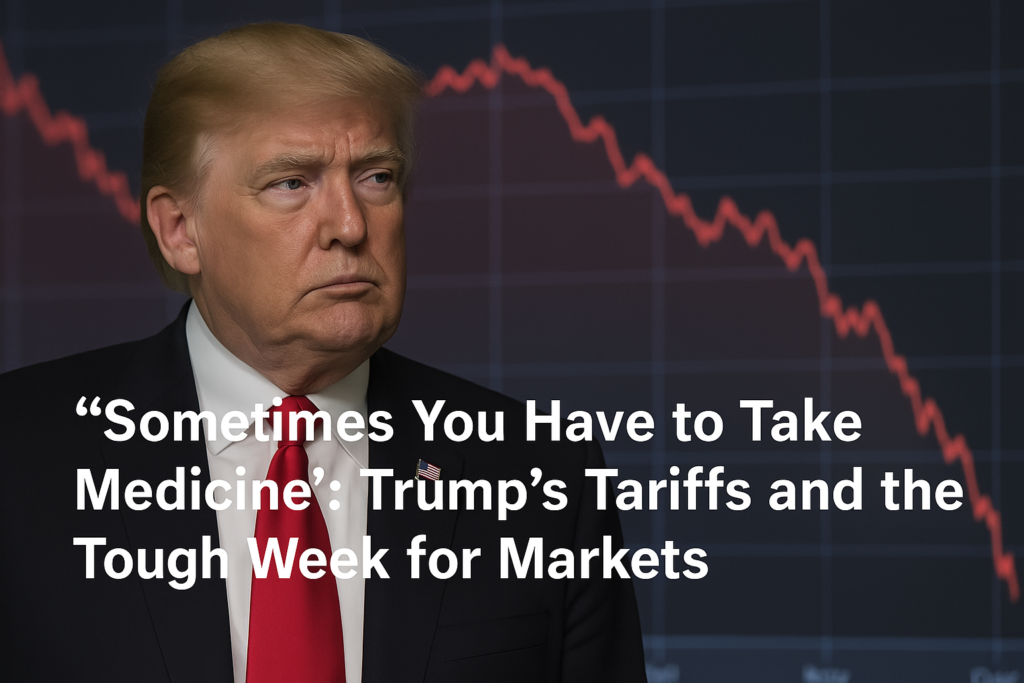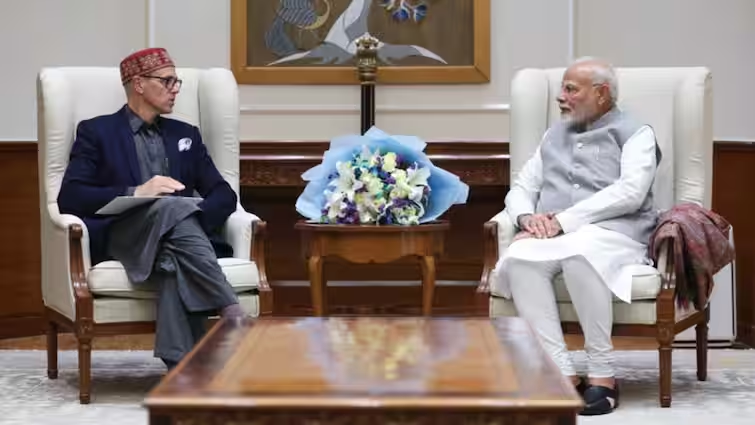“Sometimes You Have to Take Medicine”: Trump’s Tariffs and the Tough Week for Markets
US President Donald Trump has said that foreign governments will have to pay a lot of money to remove tariffs that the United States has put on their products. He compared these tariffs to “medicine,” saying that sometimes it is necessary, even if it is not pleasant. His comments came at a time when financial markets are facing a very difficult week.
#WATCH | As the US stock markets tumbled after the imposition of retaliatory tariffs, US President Donald Trump says, “…I don’t want anything to go down. But, sometimes, you have to take medicines to fix up things.”
(Source – US Network Pool via Reuters) pic.twitter.com/kzeliFsu7r
— ANI (@ANI) April 7, 2025
What Are Tariffs?
Tariffs are taxes that a country puts on goods coming in from other countries. For example, if the US puts a tariff on cars from Europe, it means those cars will become more expensive to sell in America. The idea is to protect American businesses from cheaper foreign products.
Trump’s Statement
President Trump spoke to reporters while flying on Air Force One. He said that he does not want the stock market to go down, but sometimes it is necessary to take action to fix bigger problems. He compared this situation to taking medicine.
“I don’t want anything to go down. But sometimes you have to take medicine to fix something,” Trump said.
He also said that he had talked to leaders from Europe and Asia over the weekend. These leaders are trying to persuade him to lower the high tariffs, some of which are as high as 50%. These tariffs are supposed to begin this week.
However, Trump said that the US will not make any deals unless the other countries agree to pay a large amount of money every year.
Falling Markets
The markets in Asia had a very rough start on Monday. Stock prices dropped sharply in many countries:
-
In Hong Kong, stocks fell by more than 9% after China announced new tariffs against the US.
-
In Singapore, stocks went down by over 7%.
-
In Taiwan, the stock market dropped by 9.8% when it opened.
-
In Australia, the main stock index fell by 6%.
-
In Japan, the Nikkei index dropped by more than 7%.
These large falls are a sign that investors are worried. Many believe that these tariffs could start a global trade war and may even lead to a recession—a time when the economy slows down, and people may lose jobs or earn less money.
What Caused the Market Drop?
Last week, Trump announced new tariffs on many countries. This caused anger and worry around the world. In response, China also added tariffs on US products. This kind of back-and-forth action between countries is called a trade war.
When countries keep adding tariffs to each other’s products, the prices of goods go up. This hurts businesses and consumers. If it continues for a long time, it can cause the economy to slow down, not just in one country but across the world.
Europe’s Response
The European Union (EU) is planning to take action as well. The EU is made up of many European countries that often act together on trade.
The EU countries want to show that they are united. They plan to introduce their own tariffs on goods coming from the United States. This first set of tariffs could affect up to $28 billion worth of US products.
Some of the US products that may get tariffs from the EU include:
-
Dental floss
-
Diamonds
-
Cars
-
Steel and aluminium
-
Timber
-
Semiconductors
-
Pharmaceuticals (medicine)
-
Copper
The US has already put tariffs on many EU goods. These cover around 70% of what the EU exports to the US. Last year, the EU exported goods worth 532 billion euros to the United States.
The Risk of a Trade War
When countries start putting tariffs on each other’s goods, it can turn into a trade war. In a trade war:
-
Goods become more expensive for everyone.
-
Businesses may make less money.
-
People may lose jobs.
-
The economy can slow down in many countries at the same time.
This is why many experts and leaders are worried. They fear that the actions taken by Trump and other world leaders could hurt the global economy.
Trump’s Point of View
President Trump believes that the tariffs will help American businesses and workers. He says that the US has been treated unfairly in trade for many years. He wants other countries to pay more to sell their goods in the US.
Trump says this will protect American companies from cheap foreign products. It will also help create more jobs in the US.
However, many economists say that while tariffs may help a few industries, they can hurt the economy overall. Higher prices and less trade can be bad for both businesses and customers.
What Happens Next?
This week will be very important. Countries will decide how to react to each other’s tariffs. The markets will also show how investors feel about the future.
If more countries add tariffs, and no one is willing to make a deal, the trade war could get worse. If countries come together and talk, there is still a chance to avoid a major economic crisis.
The European Union will likely announce its own set of tariffs this week. China has already responded. Now, many are watching what the US will do next.
President Trump is standing strong on his tariff policy. He says sometimes a country has to take “medicine” to fix problems, even if it is hard in the short term.
But many countries and investors are worried. Stock markets are falling, and there is fear that a global trade war could begin.
The next few weeks will be critical. World leaders will need to decide whether they want to keep fighting over trade—or come together to find a solution that works for everyone.
Only time will tell whether these tariffs will help or hurt the global economy.















